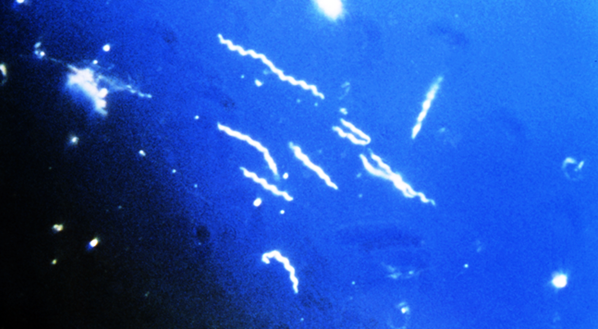Sex And Lyme Disease
November 1, 2008 in Lifestyle by Dr. Robert C. Bransfield, MD
How does chronic Lyme disease affect sexual functioning, and how can it be treated? Lyme can affect sexual functioning by its effect upon the central nervous system, the endocrine system, the autonomic nervous system, the peripheral nervous system, and/or the body.
It is well recognized that Borrelia burgdorferi (Bb) causes depression, obsessiveness, panic disorder, and phobias that are functions of the emotional aversive pathways of the brain. However, we can also see dysfunction of the reward pathways as well, which affect capacity for pleasure, feeding, bonding and sex. Since Lyme disease alters the aversive pathways which affect what and who we are repelled from, it is understandable that Lyme can also alter sexual attraction and behavioral patterns as well. With this in mind, I shall begin with some patient accounts and observations.
Sexual Arousal
Most patients report a decline in both libido and overall sexual functioning. Some state that their interest in sex and sexual functioning remain normal while a few report increased libido. One such patient described a greatly increased libido, but was frustrated because the multitudes of chronic Lyme disease symptom made it painful to be touched and/or hugged. Others describe increased libido associated with hypnagogic hallucinations.
Some patients develop an obsessive-compulsive disorder with sexual obsessions, compulsions, intrusive images, and vivid dreams following the onset of chronic Lyme disease. Of particular interest, a few patients report a change in the content of sexual imagery. A change to more violent sexual themes is sometimes noted. This, in turn, sometimes alters sexual behavior.
Could Borrelia burgdorferi or other infectious diseases sometimes alter sexual orientation or contribute to gender dysphoria, or altered patterns of sexual arousal? There is evidence that sexual functioning is altered by a number of other parasites, including Wolbachia, Spiroplasma, Rickettsia and Microsporidia. When Bb infections begin in childhood, are there some cases where it may have an effect upon sexual development? Is infectious disease one of the many factors that may affect sexual development? When changes in sexual imagery occur in adults, most are upset by the changes, which result in a decline of sexual interest. However, there are times when some individuals act out these fantasies.
Fertility: Patients complain of infertility with surprising frequency. Is infertility more common in chronic Lyme disease patients?
Atrophy of genitalia: A few patients who have been infected for over ten years report atrophy of the genitalia. Males have reported atrophy of the penis and testicles, a change that is reversed by IV antibiotics. Females report lack of vaginal lubrication, painful intercourse, and anorgasmia. One female patient reported atrophy of one breast.
Anesthesia of genitalia: On occasion, some patients complain of a loss or sensation of the genitalia. I have also seen this symptom in a few chronic fatigue patients.
Orgasm-induced migraine headaches: Although uncommon, this is sometimes seen in chronic Lyme disease patients.
Lymphocytoma of the nipple: This has been reported In Europe, but I have never seen such a case in my practice.
Menstrual irregularity: A common symptom in about 50% of menstruating patients.
Breast swelling, tenderness, and lactation: Some patients complain of this symptom.
Premenstrual Syndrome: There is a significant tendency towards worsening of the chronic Lyme disease symptoms in the premenstrual period.
Besides these symptoms associated with Lyme disease, there are many other symptoms which indirectly affect sexual functioning, i.e. fatigue, chronic pain, depression, paranoia, hypervigilance, mood swings, low frustration tolerance, temper outbursts, apathy, etc. These mood symptoms often alienate individuals from their partners. It is no surprise that many chronic Lyme disease patients report marital discord.
Treatment
A well-planned treatment approach for chronic Lyme disease can help the overall prognosis, thereby possibly helping any of these symptoms. The treatment of sexual dysfunction is one of the last frontiers in medicine. Three drugs for male erectile dysfunction have been approved for marketing. One was Viagra, developed by Pfizer. Loss of libido and a loss of sexual functioning are treated by a number of methods. Testosterone treatments are sometimes effective for loss of libido in both men and women. Dopamine agonists are also used as treatment modalities. More interesting than the treatment of sexual dysfunction is the question – can some individuals with abnormal patterns of sexual arousal be treated with antibiotics?
It is well recognized that Borrelia burgdorferi (Bb) causes depression, obsessiveness, panic disorder, and phobias that are functions of the emotional aversive pathways of the brain. However, we can also see dysfunction of the reward pathways as well, which affect capacity for pleasure, feeding, bonding and sex. Since Lyme disease alters the aversive pathways which affect what and who we are repelled from, it is understandable that Lyme can also alter sexual attraction and behavioral patterns as well. With this in mind, I shall begin with some patient accounts and observations.
Sexual Arousal
Most patients report a decline in both libido and overall sexual functioning. Some state that their interest in sex and sexual functioning remain normal while a few report increased libido. One such patient described a greatly increased libido, but was frustrated because the multitudes of chronic Lyme disease symptom made it painful to be touched and/or hugged. Others describe increased libido associated with hypnagogic hallucinations.
Some patients develop an obsessive-compulsive disorder with sexual obsessions, compulsions, intrusive images, and vivid dreams following the onset of chronic Lyme disease. Of particular interest, a few patients report a change in the content of sexual imagery. A change to more violent sexual themes is sometimes noted. This, in turn, sometimes alters sexual behavior.
Could Borrelia burgdorferi or other infectious diseases sometimes alter sexual orientation or contribute to gender dysphoria, or altered patterns of sexual arousal? There is evidence that sexual functioning is altered by a number of other parasites, including Wolbachia, Spiroplasma, Rickettsia and Microsporidia. When Bb infections begin in childhood, are there some cases where it may have an effect upon sexual development? Is infectious disease one of the many factors that may affect sexual development? When changes in sexual imagery occur in adults, most are upset by the changes, which result in a decline of sexual interest. However, there are times when some individuals act out these fantasies.
Fertility: Patients complain of infertility with surprising frequency. Is infertility more common in chronic Lyme disease patients?
Atrophy of genitalia: A few patients who have been infected for over ten years report atrophy of the genitalia. Males have reported atrophy of the penis and testicles, a change that is reversed by IV antibiotics. Females report lack of vaginal lubrication, painful intercourse, and anorgasmia. One female patient reported atrophy of one breast.
Anesthesia of genitalia: On occasion, some patients complain of a loss or sensation of the genitalia. I have also seen this symptom in a few chronic fatigue patients.
Orgasm-induced migraine headaches: Although uncommon, this is sometimes seen in chronic Lyme disease patients.
Lymphocytoma of the nipple: This has been reported In Europe, but I have never seen such a case in my practice.
Menstrual irregularity: A common symptom in about 50% of menstruating patients.
Breast swelling, tenderness, and lactation: Some patients complain of this symptom.
Premenstrual Syndrome: There is a significant tendency towards worsening of the chronic Lyme disease symptoms in the premenstrual period.
Besides these symptoms associated with Lyme disease, there are many other symptoms which indirectly affect sexual functioning, i.e. fatigue, chronic pain, depression, paranoia, hypervigilance, mood swings, low frustration tolerance, temper outbursts, apathy, etc. These mood symptoms often alienate individuals from their partners. It is no surprise that many chronic Lyme disease patients report marital discord.
Treatment
A well-planned treatment approach for chronic Lyme disease can help the overall prognosis, thereby possibly helping any of these symptoms. The treatment of sexual dysfunction is one of the last frontiers in medicine. Three drugs for male erectile dysfunction have been approved for marketing. One was Viagra, developed by Pfizer. Loss of libido and a loss of sexual functioning are treated by a number of methods. Testosterone treatments are sometimes effective for loss of libido in both men and women. Dopamine agonists are also used as treatment modalities. More interesting than the treatment of sexual dysfunction is the question – can some individuals with abnormal patterns of sexual arousal be treated with antibiotics?
About the author
Dr. Robert Bransfield, MD is a psychiatrist specializing in the link between mental health and microbes. You can learn more by visiting Dr. Robert Bransfield's website mentalhealthandillness.com.
latest posts
tags
Disclaimer: The information on this website is not a substitute for professional medical advice.
Always consult with your treating physician before altering any treatment protocol.
Always consult with your treating physician before altering any treatment protocol.








